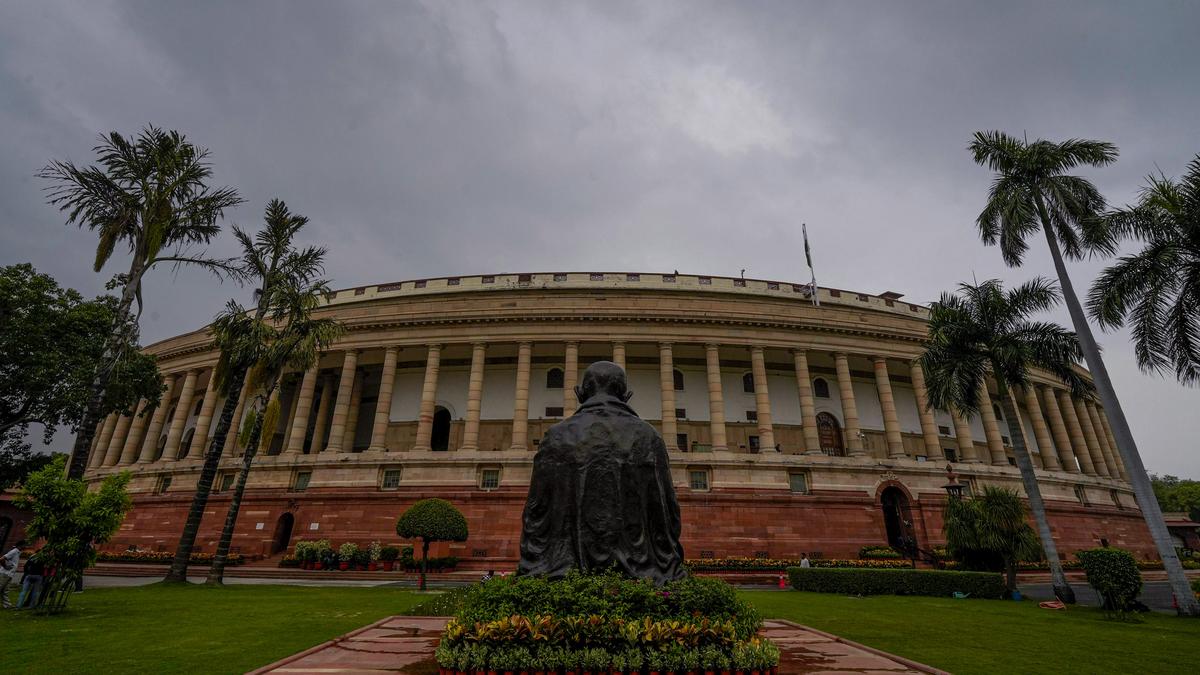The recommendation to raise the income limit for determining the creamy layer among OBCs was driven home by the Parliamentary Committee on the Welfare of OBCs in multiple reports it had tabled in the Lok Sabha on April 1, 2025
| Photo Credit: PTI
A parliamentary committee looking into the welfare of Other Backward Classes on Tuesday (April 1, 2025) said it was the “need of the hour” to raise the ₹8 lakh income limit for weeding out the “creamy layer” within OBCs, saying that this limit, set more than seven years ago, was “low” and covered only a “small segment of OBCs”.
In reports tabled in the Lok Sabha on Tuesday, the committee, headed by BJP MP Ganesh Singh, has recommended the Union government to take necessary steps to “fix a substantially higher income limit” after consulting all stakeholders so that “more and more people from the backward classes can take benefits of reservation policy for OBCs and various ongoing welfare schemes of the government”.
After the Supreme Court’s Indra Sawhney judgment in 1992, the government had introduced the concept of a “creamy layer” to exclude “socially advanced persons/sections” within OBCs from availing reservation or other government benefits. Among other criteria for creamy layer determination, there is also one that sets a limit on family income.
This income limit was set at ₹1 lakh in 1993 and has been raised from time to time since then, the last time in 2017, when the ₹8 lakh limit was set.

The recommendation to raise the income limit for determining the creamy layer among OBCs was driven home by the Parliamentary Committee on the Welfare of OBCs in multiple reports it had tabled in the Lok Sabha on Tuesday related to schemes and reservation for OBCs — that fall under the purview of the Department of Personnel and Training and the Social Justice Ministry.
In the report on the representation of OBCs pertaining to the DoPT, the committee also recommended that the government ensure data on Central job quota implementation be included in Annual Reports and be uploaded on the website. It noted that the DoPT had created a portal — Representation of Reserved Categories in Posts and Services (RRCPS) — to collect data and monitor it.
However, the data on this portal is only available to the concerned ministries and the DoPT, the committee noted, adding that making this available to the public would bring transparency. This comes after The Hindu had reported in December 2024 that the DoPT’s 2023-24 Annual Report had left out data on job quotas for the first time in at least two decades. At the time, the DoPT had said it was missing because the data could not be compiled in time.

Different calculations
Further, in the report, the committee pointed out that the creamy layer income limit for OBCs is calculated differently by different State governments (with regards to what sources of income is to be included). The panel recommended the Centre to talk to the States “in the right earnest to follow a uniform formula to the extent possible”.
It also called for the government to expeditiously establish an equivalence of posts in autonomous bodies, organisations, institutions with posts in Central and State governments, saying that because of non-establishment of the equivalence for so long, “a number of OBC candidates who have cleared UPSC Civil Services Examination have not been allotted services”.

In the report on schemes for OBCs run by the Social Justice Ministry, the committee also recommended “suitable rise” in the income limit of ₹2.5 lakh that is currently set for scholarships for OBC students. While the panel asked the government to double the income limit for beneficiaries of pre and post matric scholarships for OBCs, it has asked for “suitable rise” in the income limits for beneficiaries of top-class scholarships for school and college education.
The panel also said it was puzzling why the pre-matric scholarship for OBCs was only being offered for Class IX and X, recommending that the scholarship start covering students from Class V onwards. It also asked the government to increase the number of slots (presently 15,000) under the top-class school education scholarship for OBCs, EBCs, DNTs “in view of demand of OBC population”.
Published – April 01, 2025 10:41 pm IST
